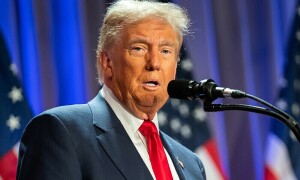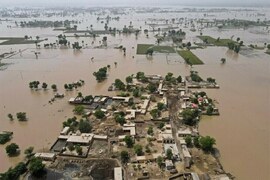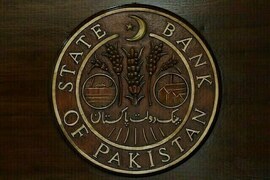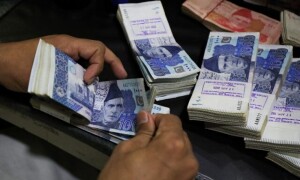Something unprecedented happened at the UN last week. Within 24 hours of winning a non-permanent member seat on the UN Security Council, Saudi Arabia announced its resignation. The country had campaigned hard to get the seat, but then suddenly said it didn't want it anymore. The rejection is all the more surprising considering that the kingdom has always maintained a low key profile on foreign policy matters, preferring quiet diplomacy. Even some of its close friends have been acting ignorant saying they are talking to the Saudis "to get a little bit more background on what is behind this."
So what is it that upset them so much? The stated reason is that the UNSC is riddled with double standards, and has failed in the Middle East. In support of its position, the Saudi foreign ministry mentioned three specific examples. First, it said "to have the Palestinian cause remaining without a fair and permanent resolution for 65 years, which resulted in several wars is that threatened international peace and security, is evidence and proof of the Security Council's inability to perform duties and responsibilities." Second, that the UNSC had failed to prevent spread of weapons of mass destruction in the region, especially nuclear weapons. Both are long standing issues; neither could be at the back of the present move. Besides, the kingdom is not known to be a staunch supporter of the Palestinian cause. If anything, it would rather like not to see a Palestinian state spreading such anathematic notions (of course, from its perspective) in the region as elections, democratic governance, and fundamental rights. As for the sole nuclear weapons state in the region, Israel, Saudi Arabia has no track record of raising the issue in a meaningful manner at international forums.
The third and current issue the Saudi foreign ministry cited for rejection of the UNSC seat is the civil war in Syria, blaming the world body for not punishing the Assad regime for the chemical weapons attack in a Damascus suburb. There is nothing to prove that the Syrian government was responsible for the atrocity. As a matter of fact impeccable media reports, based on Russian record of the markings the poison gas canisters bore, say that they were procured by the Qadhafi regime, from where they found their way into the hands of Sunni extremist groups fighting the Assad regime. Those groups, backed by the Saudi kingdom and its Gulf allies, are the key suspects for the attack.
As regards the UN role in dealing with the issue, it has managed to elicit a Russian proposal to have Syria get rid of all its chemical weapons under UN supervision. Which, some analysts have pointed out, will deprive the country of the only defence it has had against Israel's nuclear threat. The US may not have succeeded in ousting Assad but it has achieved a major success for itself and its protégé. Saudi criticism of the UN on this particular score is as unconvincing as can be.
The rejection seems to have come more from disappointment with the US than the UN. The US along with its European allies had been itching to attack Syria. These countries spent a lot of energy and resources on arming and financing rebels, creating Free Syrian Army then uniting different groups to form a Supreme Military Council, and setting up an interim government under the banner of National Coalition for Syrian Revolutionary Opposition Forces. But Saudi Arabia and its regional allies messed up things.
In their zeal to get rid of the Assad regime, they put their weight behind radical Sunni Islamists supplying arms, training and money to such groups as al-Nusra Front - banned by the US due to its ties with al Qaeda. These Islamists have been dominating the rebels, holding most of the Supreme Council commanders' positions, managing the affairs of areas freed from governmental control, seizing control of oil fields, and implementing their version of Islamic sharia. That presented the Western countries with the dilemma of choosing between the proverbial devil and the deep sea. Helping Sunni extremists make a triumphant march into Damascus would have eliminated the devil but the alternative meant giving a new lease of life to al Qaeda and its ilk. They deemed it better to deal with a known devil than reviving a much more dangerous monster, and find some sort of a negotiated solution to the situation.
The Gulf kingdoms are wary of the way the US is dealing the changing Middle East scenario. The real problem for them is Iran. They have wanted regime change in Syria to curb Iran's influence in the region. Despite sharing that interest, the US restrained the urge to attack Syria because of Sunni extremists' growing control over the coalition of rebel fighters. In the same vein, having realised that sanctions would not force Iran into changing its nuclear stance, and that the use of military force could lead to unpalatable consequences, Washington decided to make a fresh beginning with Iran's new President Hassan Rouhani. Although, the much anticipated meeting between the two countries' presidents on the sidelines of the UNGA session did not take place, President Obama had a pleasant conversation with Rouhani by phone. Surely, none of this sat well with Saudi sensitivities. As press reports point out, it was to register its displeasure over the development that Saudi Foreign Minister Saud al-Faisal refused to address the UNGA meeting. The rejection of the UNSC seat is meant to convey the same message. Still, the two old allies need one another. The kingdom's political and security interests are closely tied to the US. The falling out is unlikely to last long. The UN has not been officially informed of the Saudi resignation. Having made its point loud and clear, the kingdom is expected to allow UN officials to persuade it to take the much coveted seat at the high table. Efforts are already on to bring it back in.
saida_fazal@yahoo.com
BR100
15,235
Increased By
150.4 (1%)
BR30
44,824
Increased By
812 (1.85%)
KSE100
149,971
Increased By
1353.3 (0.91%)
KSE30
45,655
Increased By
407.2 (0.9%)






















Comments
Comments are closed.